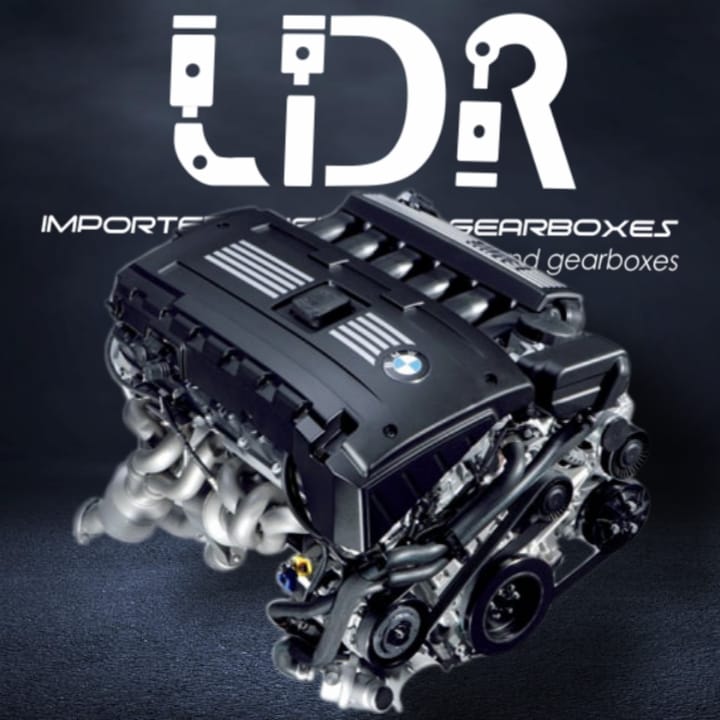BMW 318ti: A Classic Compact with Ageless Allure
Vital Factors To Consider for Selecting the very best Engine for Your Demands
In the realm of picking the optimal engine to fulfill your needs, numerous vital variables demand careful factor to consider to ensure optimal efficiency and efficiency. From the nuanced equilibrium in between power and efficiency to the often-overlooked elements of maintenance and service needs, each element plays a crucial duty in determining one of the most suitable engine for your certain needs. As the intricacy of engine technologies remains to evolve, critical the most fitting choice demands a deep understanding of the interaction between numerous considerations. By exploring the detailed internet of aspects that underpin this decision-making procedure, a more clear course emerges in the direction of selecting an engine that not only satisfies however exceeds your assumptions.
Power and Performance
When examining engines for optimal efficiency, it is crucial to prioritize both power result and efficiency. Power outcome determines the capability of an engine to generate energy, which directly influences its performance. A high power outcome is important for demanding jobs such as high-speed requirements or sturdy applications. It ensures that the engine can handle the workload successfully and effectively. However, power alone is not adequate; efficiency plays a considerable function in identifying the overall efficiency of an engine. Performance refers to just how well the engine converts gas right into useful power. An extra efficient engine will certainly deliver far better mileage, lower discharges, and reduced operating expense. Striking the best balance in between power output and efficiency is key to selecting an engine that meets your certain demands. When making this decision, it is necessary to take into consideration elements such as the planned use of the engine, environmental influence, and long-term expense ramifications. By carefully evaluating both power and efficiency, you can choose an engine that delivers ideal efficiency and satisfies your demands successfully.
Gas Performance and Economic Climate
Fuel efficiency refers to the engine's capacity to convert fuel right into energy with very little waste, straight influencing operating costs and environmental sustainability. Engines with higher fuel effectiveness not just decrease gas expenditures however likewise lower carbon discharges, contributing to a greener operation.

Compatibility and Application
Taking into consideration the gas efficiency and economy of an engine, the next important aspect to address is its compatibility and application within specific operational contexts. Compatibility refers to exactly how well the engine incorporates with the total system or devices it powers. It involves aspects such as physical dimensions, installing options, electrical user interfaces, and control systems. Guaranteeing compatibility is necessary to stop problems such as overheating, vibrations, or power imbalances (bmw 318ti).
Additionally, the application of the engine is equally vital. Different engines are created for specific functions, whether it be industrial machinery, aquatic vessels, vehicles, or power generators. Comprehending the desired application enables for the selection of an engine that can provide the necessary power outcome, torque, and functional attributes. A high-revving engine developed for efficiency cars and trucks would not be ideal for sturdy construction tools that calls for high torque at low speeds.
Upkeep and Solution Requirements
Upkeep and solution requirements play a critical function in ensuring the longevity and optimum efficiency of an engine. Normal maintenance is necessary to prevent breakdowns, extend the lifespan of the engine, and maintain its performance. When picking an engine, it is very important to take into consideration the supplier's suggested upkeep schedule and the availability of service centers or qualified specialists.
Variables such as the regularity of oil adjustments, filter replacements, and general examinations can dramatically influence the engine's performance. Some engines may need even more constant servicing based on their style and usage, while others might have longer intervals between maintenance checks. It is crucial to comply with these solution demands to avoid expensive repairs and unanticipated downtime.

Price and Spending Plan Factors To Consider
When choosing an engine for a specific application,Spending plan restrictions frequently play a substantial function in the decision-making process. When considering the expense and budget plan ramifications of choosing an engine, it is crucial to assess not only the first acquisition rate yet likewise the long-term expenses related to upkeep, fuel usage, and potential upgrades or repair work. It is important to strike a balance between the ahead of time expense of the engine and its general lifecycle prices Click Here to guarantee that the picked engine remains economically lasting throughout its operational lifespan.
Elements such as fuel reliability, durability, and efficiency can directly influence the total cost of ownership of an engine. While an extra pricey engine might have greater ahead of time costs, it could potentially result in reduced maintenance and fuel expenses over time, thus offering better value in the lengthy run.
Verdict

Fuel performance refers to the engine's ability to convert fuel right into power with very little waste, straight affecting operating expenses and ecological sustainability.Variables influencing fuel efficiency consist of engine style, combustion efficiency, and total efficiency optimization. Furthermore, selecting the ideal gas kind and grade as suggested by the engine manufacturer can even more improve efficiency and prolong engine life-span.
Engines with excellent service features and conveniently offered components can minimize maintenance costs and lessen the time the engine is out of operation - bmw 318ti. It is vital to strike an equilibrium in between the upfront cost visit our website of the engine and its general lifecycle prices to make certain that the picked engine stays economically sustainable throughout its functional life-span